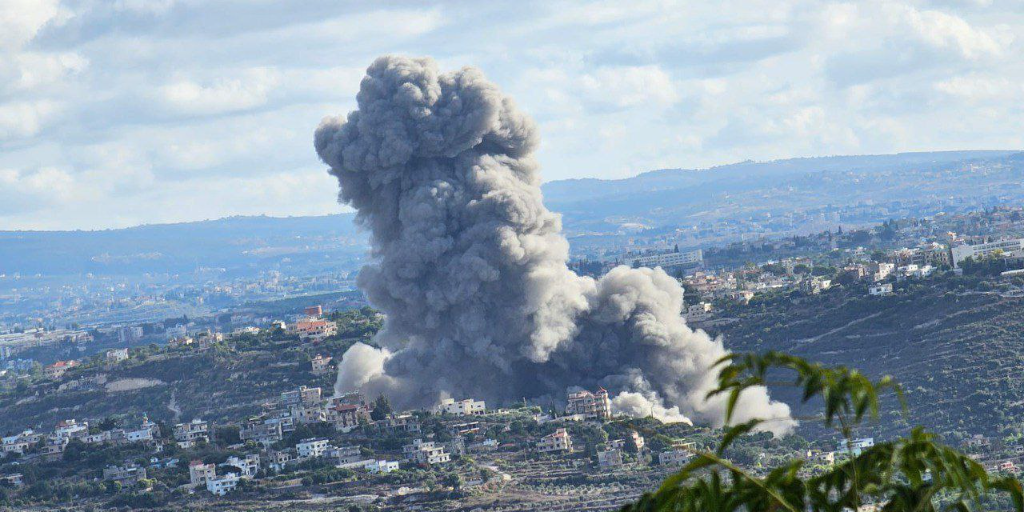Israel’s full-scale airstrike operation in Lebanon continued on 24 September, resulting in a rising death toll of 558, 50 of them children, and with an additional 1,835 wounded, according to Lebanon’s Ministry of Health.
Israel and Lebanon-based Islamist militant group Hezbollah have been embroiled in skirmishes over several months since the start of the War on Gaza on 7 October. Several regional neighbors, including Egypt, had previously warned of the war escalating to other parts of the region — calling for a ceasefire agreement multiple times.
Israel’s recent attacks in Lebanon serve as the outcome of Egypt’s and several other government’s warnings, resulting in a series of large-scale airstrikes in civilian areas that began on 22 September.
As the strikes continue, residents of Beirut have reported receiving phone messages urging them to evacuate areas where Hezbollah is believed to be operating or storing weapons. Lebanon’s Information Minister, Ziad Makary, confirmed that “a large number of citizens in Beirut” had received these “unified random telephone messages via the terrestrial network,” calling for their evacuation.
Israel has a history of using phone or text message warnings ahead of airstrikes, a tactic previously deployed in Gaza. However, this time, the conflict appears to be expanding, as Israel’s Defence Minister Yoav Gallant stated that the strikes on Lebanon would continue “until we achieve our goals” of returning thousands of displaced Israelis to the north.
ISRAEL-HEZBOLLAH CONFLICT EXPLAINED
The current wave of hostilities between Israel and Hezbollah is linked to the broader war in Gaza, though tensions between the two sides stretch back decades.
Hostilities between Israel and Hezbollah have simmered since the militia’s inception in the 1980s, periodically erupting into skirmishes and full-scale conflicts, such as the 34-day war in 2006.
Since 7 October, Hezbollah has framed its involvement as a show of solidarity with Palestinians in Gaza. However, cross-border attacks are also seen as a strategic move by the militant group to strain Israeli resources and attention. The group’s actions align with broader regional dynamics, as Hezbollah is deeply intertwined with Iran.
The conflict has escalated over the past week. On 17 September, a series of explosions involving pagers and walkie-talkies used by Hezbollah members and relatives across Lebanon killed 39 people and wounded hundreds.
Hezbollah has blamed Israel for the explosions, though Israeli officials have declined to comment. The following day, Israeli forces conducted an airstrike in Dahieh, a Hezbollah stronghold in southern Beirut, killing a senior Hezbollah commander and other militia leaders.
Israel’s government continues to claim that its actions are based on self-defense and that its actions are done to preemptively prevent Hezbollah attacks on Israeli citizens.
Israeli Prime Minister Benjamin Netanyahu released a video message to Lebanese citizens, warning them to flee their homes. Netanyahu alleged that Hezbollah is using citizens as “human shields” and installed missile launchers in civilian homes to direct attacks toward Israeli civilians.
Netanyahu did not comment on the airstrikes killings civilians, including children and women, during his video.
Several countries, including Egypt, have since called for an immediate ceasefire.







Comments (0)